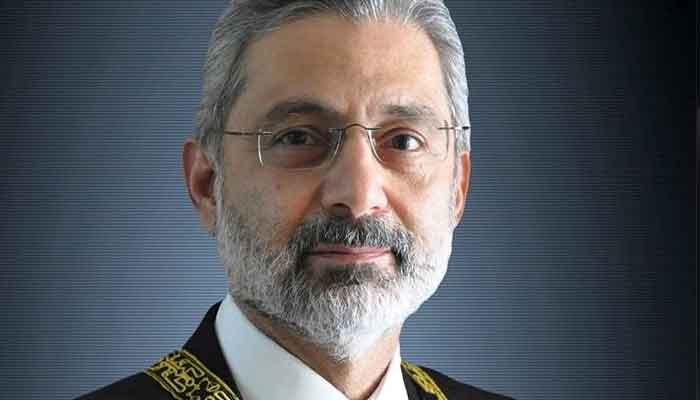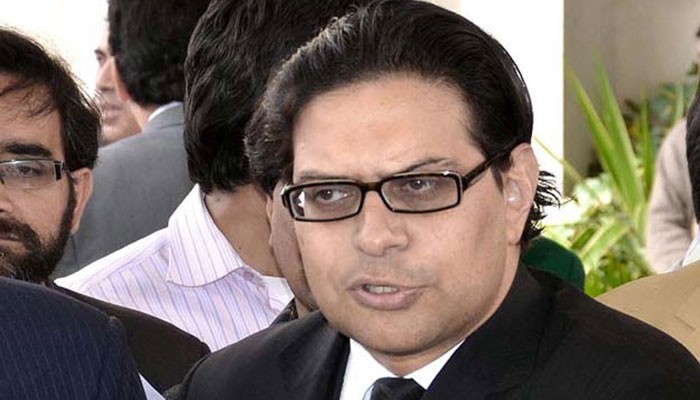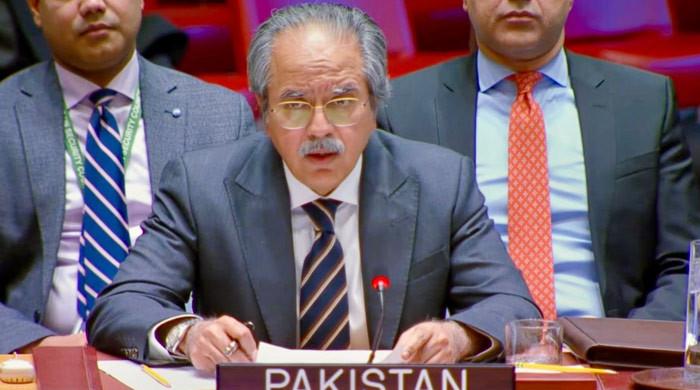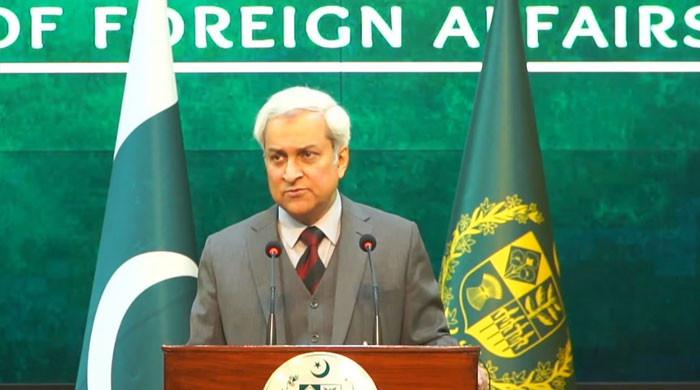ARU collected information against Justice Isa without lawful authority, argues counsel
Information later placed before President Alvi resulted in reference against Justice Qazi Faez Isa
January 29, 2020

ISLAMABAD: A counsel for Pakistan Bar Council (PBC) argued before the Supreme Court (SC) of Pakistan on Tuesday that the gathering of information by the Asset Recovery Unit (ARU) of the government against a judge of the top court was done without lawful executive authority, reported The News.
The information, later placed before President Arif Alvi, had resulted in a presidential reference filed against Justice Qazi Faez Isa back in May 2019. Justice Isa had been accused of failing to disclose assets belonging to his wife and children in his tax returns.
The Supreme Judicial Council (SJC) had taken up the case, but petitions had also been filed in the top court against the reference by numerous parties, including the PBC. A ten-member bench of the top court had later been constituted to conduct hearings into these petitions.
Also read: SJC issues two show-cause notices to Justice Qazi Faez Isa
The bench, headed by Justice Umar Ata Bandial, comprised of Justice Maqbool Baqir, Justice Manzoor Ahmed Malik, Justice Faisal Arab, Justice Mazhar Alam Khan Miankhel, Justice Sajjad Ali Shah, Justice Syed Mansoor Ali Shah, Justice Munib Akhtar, Justice Yahya Afridi and Justice Qazi Amin Ahmed.
The hearing into the petitions resumed on Tuesday in which Salman Akram Raja, the counsel for the PBC, argued before the court that no doctrine, executive authority or rules of business could provided basis for the authority of the ARU.
"The obtaining of information in the stage prior to its placement before the president could only have been through recourse to the normal flow of information made available under the various statutes such as the Nadra laws or property registration laws," the counsel told the court.

Also read: Lawyers announce strike on June 14 over references against judges
'President not bound by premier, cabinet'
Raja argued that the opinion formed by the filer of the reference against the judge had to be inherent on that information being lawfully collected and provided to the filer. "Legislation provides for a no-invasive collection and vetting of information in compliance with Article 209," Raja contended.
"The opinion envisaged by Article 209(5) is to be formed by the President independently without being bound by the advice of the prime minister or the cabinet in terms of Article 48 and such independence is inherent in the very idea and the conception of an opinion,” the counsel submitted.
Referencing the example of a previous case involving a top court judge, Raja said that the president was free to form his own opinions on the matter. "The opinion, in terms of Article 209(5), must satisfy not only the requirement that it be based on lawfully collected material, but must also ensure protection of the due process right of the judge," he said.
'SJC cannot function as first-tier of tax admin'
He further submitted that the alleged non-compliance of Section 116 can only attract notice and further action under the income tax law. “Patently, wrong reading of Section 116(1) has been made by the president and no notice to this day has been issued under section 116(1)," he noted.
Raja further added that the Supreme Judicial Council could not function as the first tier of income tax administration and such action would violate not only initial due process but also deny multiple rights of appeal as designated under the law.
“In the alternative, even if the opinion in terms of Article 209(5) is to be formed by the prime minister and the cabinet, the opinion must satisfy the requirements of honouring due process for it to be considered reasonable," he said before proceedings were postponed for Wednesday.
Originally published in The News











